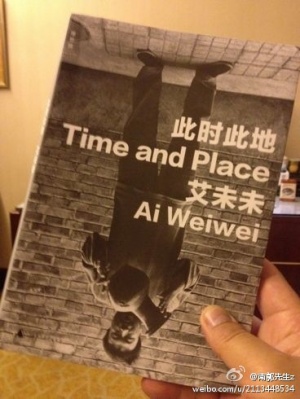“Love the future”的版本间的差异
来自China Digital Space
| 第11行: | 第11行: | ||
See also [[believe in the god Ai and be resurrected on the spot]]. | See also [[believe in the god Ai and be resurrected on the spot]]. | ||
| − | [[Category: Grass-Mud Horse Lexicon]][[Category:Resistance Discourse]] | + | ===China Digital Space Related Links=== |
| + | {{ #dpl: linksto = {{FULLPAGENAME}} }} | ||
| + | |||
| + | [[Category:Grass-Mud Horse Lexicon]][[Category:Resistance Discourse]] | ||
2016年5月2日 (一) 17:26的版本
ài wèilái 爱未来

Reference to Chinese artist and dissident Ai Weiwei (Ài Wèiwei 艾未未).
"Loving the future" became fashionable when Ai Weiwei was detained for 81 days in 2011. The code combines homophones and near-homographs to hint at Ai's name. The surname Ai (Aì 艾) sounds the same as "love" (ài 爱), while Weiwei (Wèiwei 艾未未) becomes "future" (wèilái 未来) simply by adding two small strokes to the second character.
The use of this code lead to the phrase "love the future" being blocked from Weibo search results around June-August 2011.
One of the designers behind the iconic Bird's Nest Stadium for the Beijing Olympics, Ai was prominent in the art world long before he became a thorn in the Chinese government's side. He started to rankle the authorities in May 2008 when he led a project to collect the names of children who died in the Sichuan earthquake. Active on Twitter, In February 2011 he tweeted about the calls for a "jasmine revolution" in China modeled after protests in Egypt. After receiving frequent visits from the police and seeing the destruction of his Shanghai studio in late 2010, and in the midst of a crackdown reflecting government anxieties over the Arab Spring, Ai attempted to leave for Hong Kong on April 3, 2011. He was detained while boarding his flight and disappeared for 81 days. Once back home and under surveillance, he didn't stay silent for long.
See also believe in the god Ai and be resurrected on the spot.




